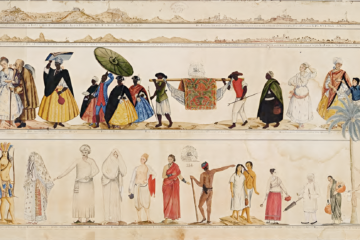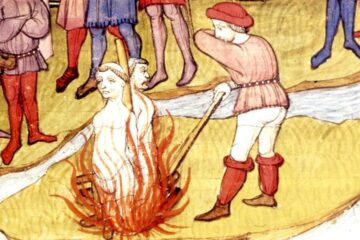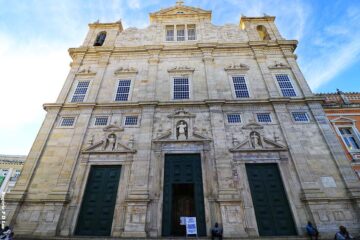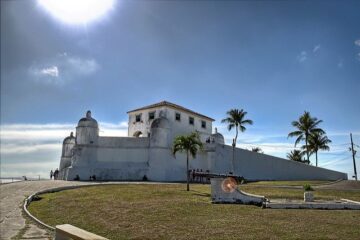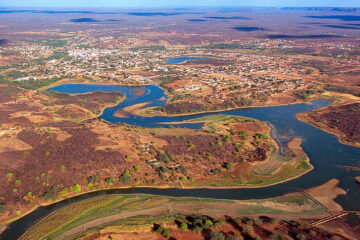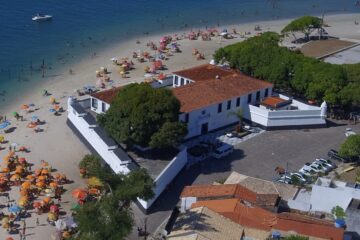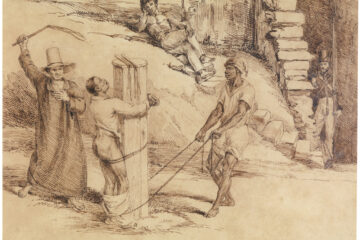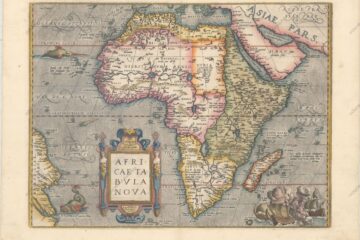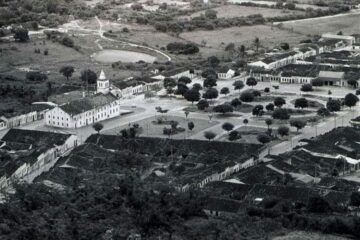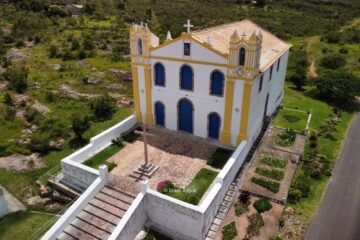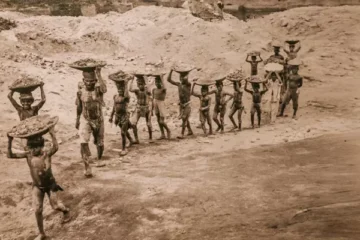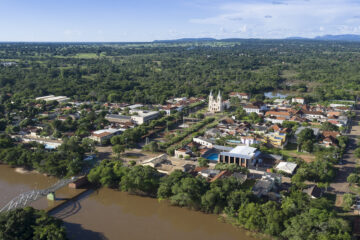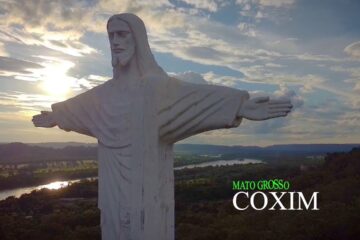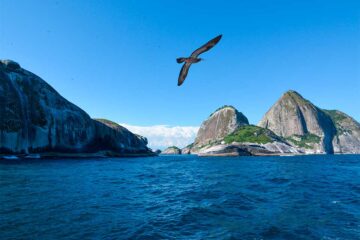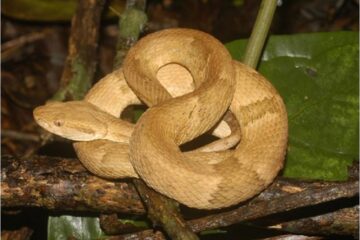Discover the wonders of the Baturité Massif: A natural paradise in Ceará
The green landscape of the Baturité Massif
The green landscape of the Baturité Massif is one of the most popular tourist destinations in Ceará. The humid climate and average temperatures, which vary between 20ºC and 22ºC – with lows of 17ºC –, make the region ideal for weekends.
The scenery is framed by a small strip of Atlantic Forest, which has been turned into a Environmental Protection Area, making the Baturité Massif a perfect place for ecotourism.
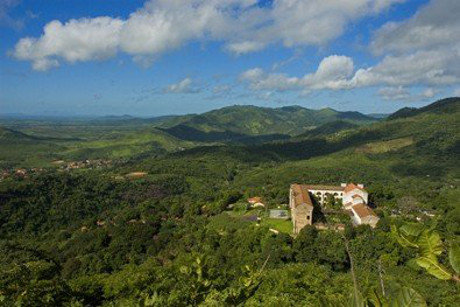
The Baturité Massif in Ceará
The Baturité Massif is a geological formation located in the central hinterland of Ceará, covering the municipalities of Pacoti, Palmácia, Guaramiranga, Mulungu, Aratuba, Capistrano, Itapiúna, Baturité, Aracoiaba, Acarape, Redenção, Barreira and Ocara.
Although it comprises 12 municipalities, Guaramiranga (the most famous), Pacoti, Mulungu and Baturité are the main highlights of the region.
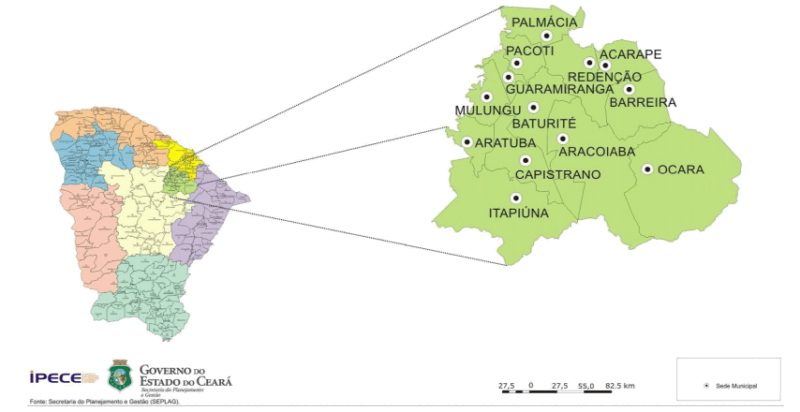
Natural features
This formation is made up of limestone and granite and is rich in waterfalls, rivers and traces of the Atlantic Forest.
Tourism is very active in this area, which becomes a centre of local development, especially in winter when the flow of visitors increases.
Many people don’t realise it, but Ceará is much more than the capital and its beaches. To get away from the hustle and bustle of the big cities, it’s ideal to spend a weekend in the small towns of the Baturité Massif, where you can find peace and relaxation amidst the greenery of nature.
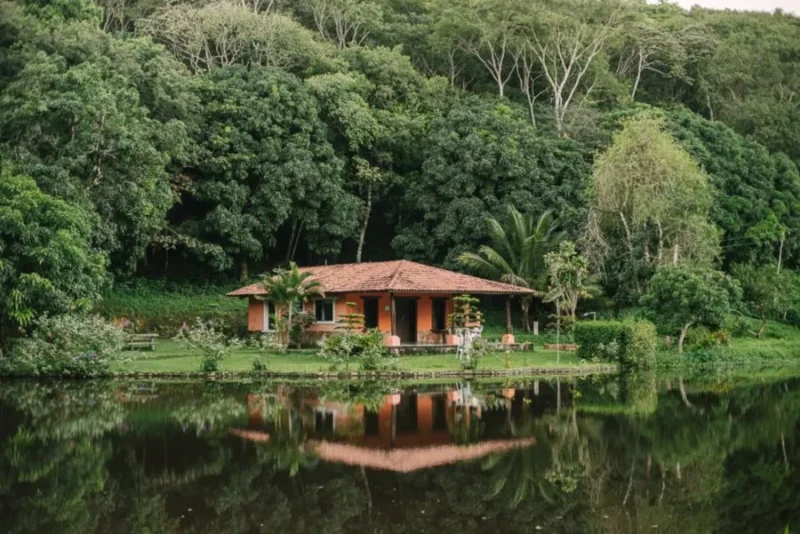
The fresh air is relaxing and the mild climate is extremely pleasant. The mountain complex is truly magnificent.
Ceará’s ecotourism programme consists of six centres, including the Serra de Baturité, located 100 km from Fortaleza.
This region is home to 178 plant species and a wide variety of animal species, most notably 154 bird species catalogued in the Serra de Baturité Environmental Protection Area (APA).
The area is full of lush forests, waterfalls, cascades and caves, as well as ecological trails and walls for abseiling.
Main tourist attractions in the Baturité Massif
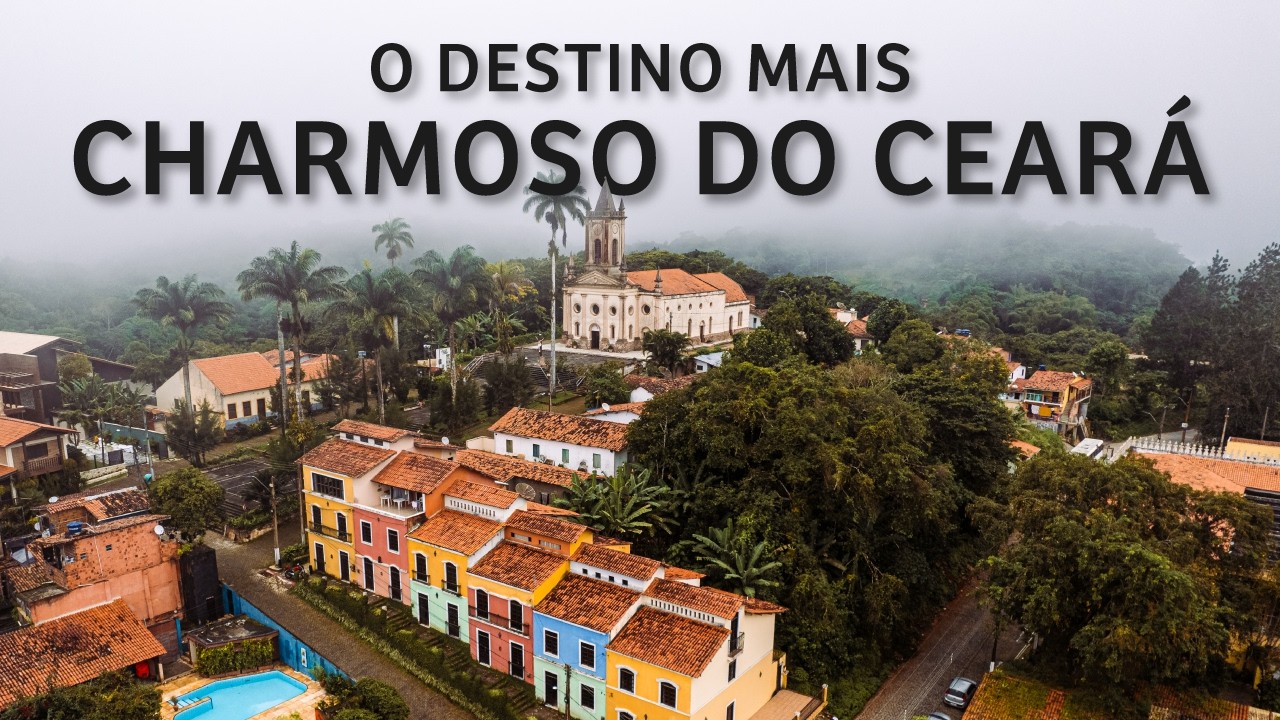
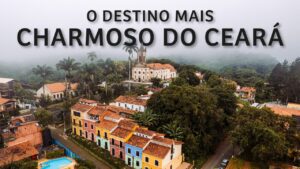
Conheça Guaramiranga e o Maciço de Baturité, CE

Maciço de Baturité no Ceará00:58

Guaramiranga no Ceará00:57

Mosteiro dos Jesuítas em Baturité CE04:28
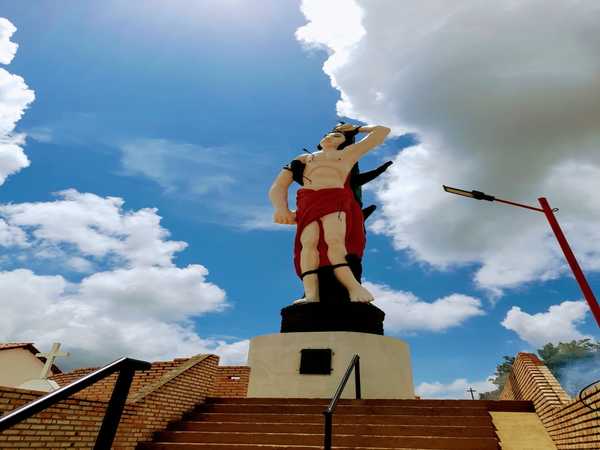
Mulungu no Ceará - Estátua de São Sebastião06:04

MACIÇO DE BATURITÉ - GUARAMIRANGA, PACOTI E BATURITÉ06:43
1. Pico Alto
The highest point in the region at 1,115 metres, it offers breathtaking views and is a popular spot for hiking and nature watching.
2. Guaramiranga
Known as the “Switzerland of Ceará”, Guaramiranga is famous for its mild climate, flower cultivation and theatre and jazz & blues festivals.
The city is particularly known for the variety of flowers that flourish in its fertile soil, making it a charming destination for botany lovers. The city has retained much of its original flora and is an excellent destination for those seeking tranquillity and contact with nature.
3. Baturité
In addition to its rich history, Baturité is home to attractions such as the Cristo Rei Church, the Baturité Railway Museum and the Fabeer Craft Beer Factory. The town is an important starting point for exploring the region.
4. Jesuit Monastery
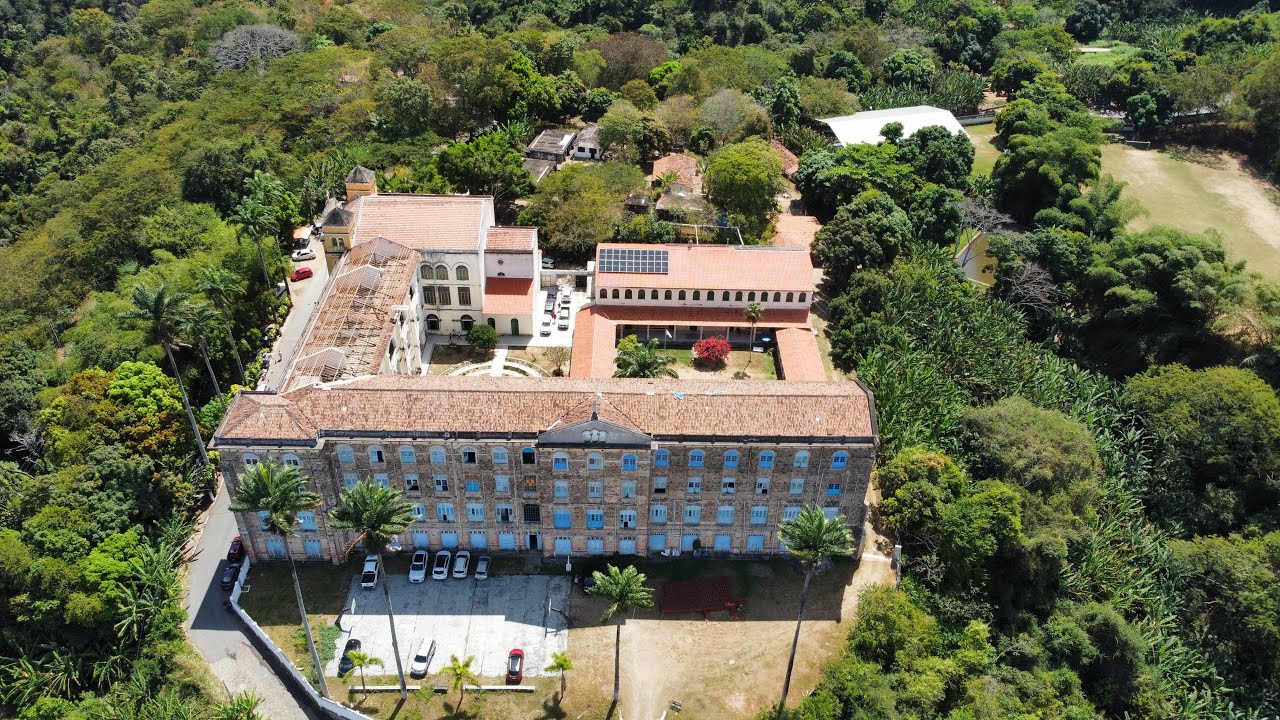
Mosteiro dos Jesuítas em Guaramiranga CE
An impressive historic building that houses objects from former residents. The site also has a viewpoint with panoramic views.
5. Waterfalls
The region has several waterfalls, such as Cachoeira Santa Edwiges and Cachoeira do Perigo, which are ideal for nature lovers and those looking for ecotourism activities.
6. Ecological trails
The Baturité Massif is full of trails that allow visitors to discover the rich biodiversity of the Atlantic Forest, with the possibility of spotting various species of birds and plants.
7. Pacoti
Known as the “Little Princess of the Mountains”, Pacoti has a mild climate and is rich in a variety of fruits and flowers.
8. Mulungu
Situated at an altitude of 700 metres, Mulungu is known for its shade-grown coffee and offers an authentic experience of rural life in Ceará.
Main tourist towns in the Baturité Massif
1. Baturité
- Distance from Fortaleza: 106 km
- Access: CE 060 / CE 356
Baturité lies at the foot of the massif that gives it its name.
In the past, the town was very important because of the railway that transported fruit and vegetables to Fortaleza.
The Baturité massif was an important coffee-growing centre, now almost completely abandoned.
The pleasant climate attracted religious orders such as the Jesuits, who built a famous college in the 18th century, which is now deactivated but hosts conferences and guests at weekends.
Baturité’s origins date back to 1764, with the foundation of the Vila Real de Monte Mor o Novo d’América, organised to gather the indigenous people under an administrative regime proposed by the Marquis of Pombal.
With Brazil’s independence, the town adopted the indigenous name of the great mountain range, Baturité, which means “true mountain” in Tupi.
While in Baturité, be sure to visit the Fabeer Craft Beer Factory, the Cristo Rei Church and the Baturité Railway Museum.
The local gastronomy is also an attraction, offering typical dishes such as carne de sol, queijo coalho and regional sweets.
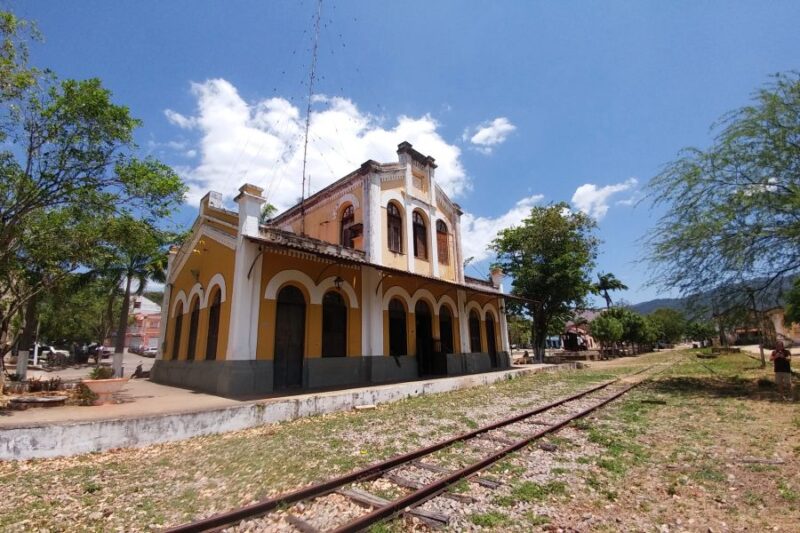
2 Jesuit Monastery
The Jesuit Monastery is an impressive stone building built by the Portuguese Jesuits, which houses valuable artefacts from the area’s former inhabitants. Located just 1.5 km from the centre of Baturité, the monastery has a belvedere with breathtaking views, accessible only by foot.
To ensure a peaceful visit, it is advisable to contact the monastery before arriving to confirm that it is in retreat and to organise visits for large groups.

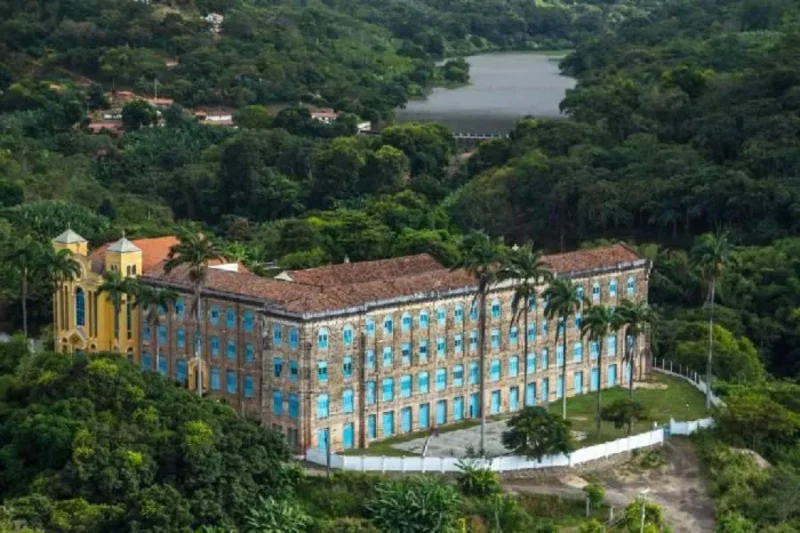
3. Guaramiranga
- Distance from Fortaleza: 123 km
- Access: CE 060 / CE 356 / CE 065
Known as the Switzerland of Ceará, Guaramiranga sits at an altitude of 865 metres and is famous for its flower growing, theatre and jazz & blues festivals.

The city retains 80 per cent of its original flora, made up of species from the Atlantic forest and the Amazon rainforest. A must-see is Pico Alto, at 1,115 metres, which offers breathtaking views of the region and is ideal for hiking among the remnants of the Atlantic Forest.

4. Pacoti
- Distance from Fortaleza: 130 km
- Access: CE 060 / CE 356 / CE 065
Known as the Little Princess of the Mountains, Pacoti has a mild climate and is rich in fruit and flowers. The town breathes history and retains the simplicity of a country town.
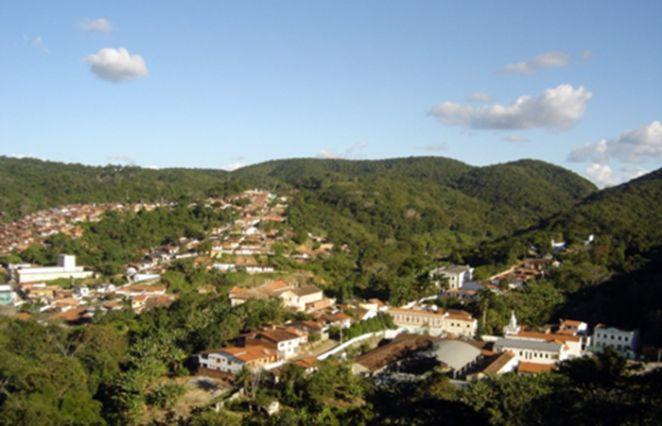
Highlights include the Chapel of Jesus Crucified, the Sítio Olho D’Água and the Mother Church of Nossa Senhora da Conceição. The local gastronomy is also worth mentioning, with typical dishes that reflect the culture of the region.
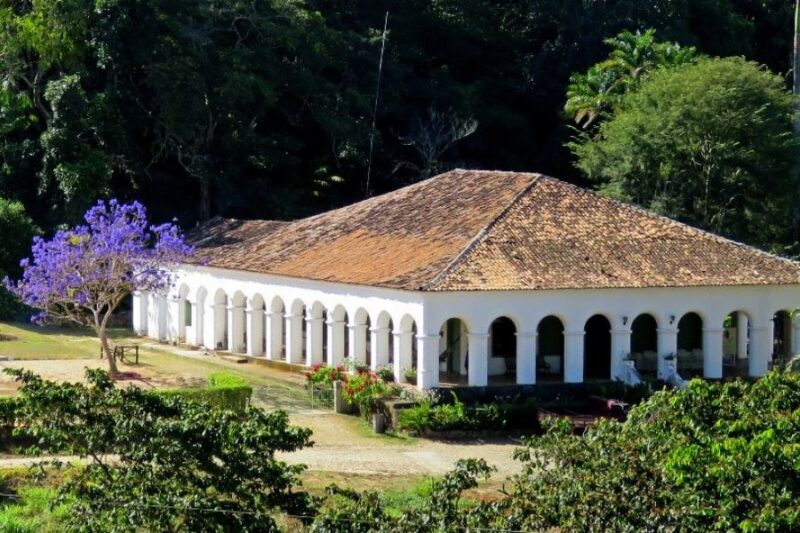
5. Mulungu
- Distance from Fortaleza: 110 km
- Access: CE 004 / CE 114 / CE-065
Situated at an altitude of 700 metres, Mulungu is known for its shade-grown coffee and has several points of interest, such as the Sítio Nova Holanda, the Church of São Sebastião and the São Sebastião Staircase.
It’s also a great place for nature lovers, with hiking trails and viewpoints.
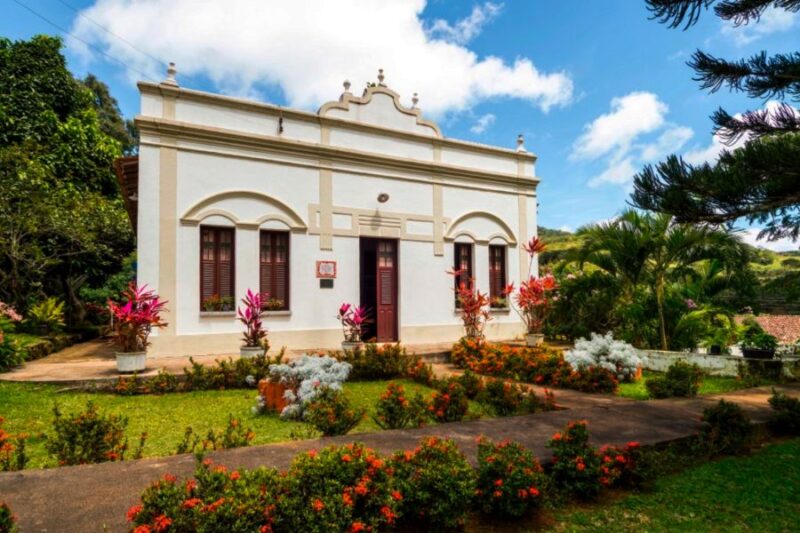
Tips from the Baturité Massif
In Guaramiranga, don’t miss the opportunity to visit Pico Alto, which offers temperatures between 12ºC and 15ºC and a panoramic view of the entire region. The road linking the towns of Baturité, Guaramiranga and Pacoti is winding, so it’s important to drive carefully.
Baturité, Guaramiranga and Pacoti Massif Tourist Guide
Publicações Relacionadas
Ubajara National Park: Adventure Awaits in Ceará
Guaramiranga: The Switzerland of Ceará
Cariri in Ceará: An Ecological and Cultural Tourism Destination
Serra de Ibiapaba: A natural paradise for adventure and ecotourism
Three-day tour of the Cariri region of Ceará
Religious Tourism in Juazeiro do Norte and in Northeast Brazil
This post is also on:
![]() Português
Português ![]() English
English ![]() Deutsch
Deutsch ![]() Español
Español ![]() Français
Français


